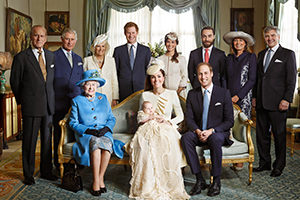I have discovered the truth about French rudeness.
It happened one evening, as my English boyfriend and I were selecting our dinner from a very extensive menu of wraps in a little shop in central London. We had just begun examining the board, when the waitress asked which wrap I wanted.
“W-w-wait!” I said, overwhelmed by the amount of delicious options, “I haven’t chosen yet.”
The waitress turned to my boyfriend to take his order, and it was only when I raised my head to ask for his opinion that I saw the look of horror on his face.I had no idea what was troubling him. I even looked around for a second or two, trying to spot the reason for his unease, only to realise from his particularly attentive way of addressing the waitress that it was me- I had made a massive faux pas in talking to her.
I replayed the exchange in my head. This had been a polite conversation, friendly even, since it was more relaxed than your usual business transaction. I really didn’t understand what I had done wrong. Nevertheless, I made sure to over-thank the waitress, in case I had offended her without knowing. I remained confused for the rest of the meal, Erik remained mortified, and the waitress, not English herself, went back to her duties nonplussed.
I don’t like feeling rude, so I gave the incident quite a bit of thought. The more I thought about it however, the less I could see the problem. I had not meant to sound ungrateful for her attention, much less to offend her. I just wasn’t ready to order.
And suddenly, yet another light turned on. That was the infamous French rudeness I had been hearing about since my very first trip to Tarrytown.
I had never thought that it applied to me. First of all, it was nothing more than a stereotype, probably derived from a conflict long forgotten. And even if it indeed was an evil national trait, too engrained in French culture to be visible to the French, it couldn’t be describing me. I say “please” and I offer my seat to elderly people after all.
What I came to realise, however, is that it is neither of these things. What is known as French rudeness is a different definition of what qualifies as rude.
All cultures have such a definition, which explains why, out of all the nationalities I encountered at EF and at university, only some described the French as rude, mainly the American and the British. Some cultures’ definition of rudeness are similar, others are completely different. The waitress’s culture’s definition must have been close to mine, but Erik’s was miles away.
This is all well and good, but that doesn’t solve any problems. Cultural differences do not stop causing trouble as soon as you acknowledge them. I cannot just distance myself from my French standards; they are very much entwined with my personality. If I want not to be considered rude in England and America again, I will have to constantly put myself in somebody else’s shoes.
I will try. Not because I think the French standard for politeness is inferior to yours; I will try because I happen to enjoy English and American politeness when they’re directed at me, so the least I can do is return the favour.
Bear with me while I adapt, ok?
Oh, sorry, let me try again: I would appreciate it if you could be patient with me while I adapt. Thank you.



